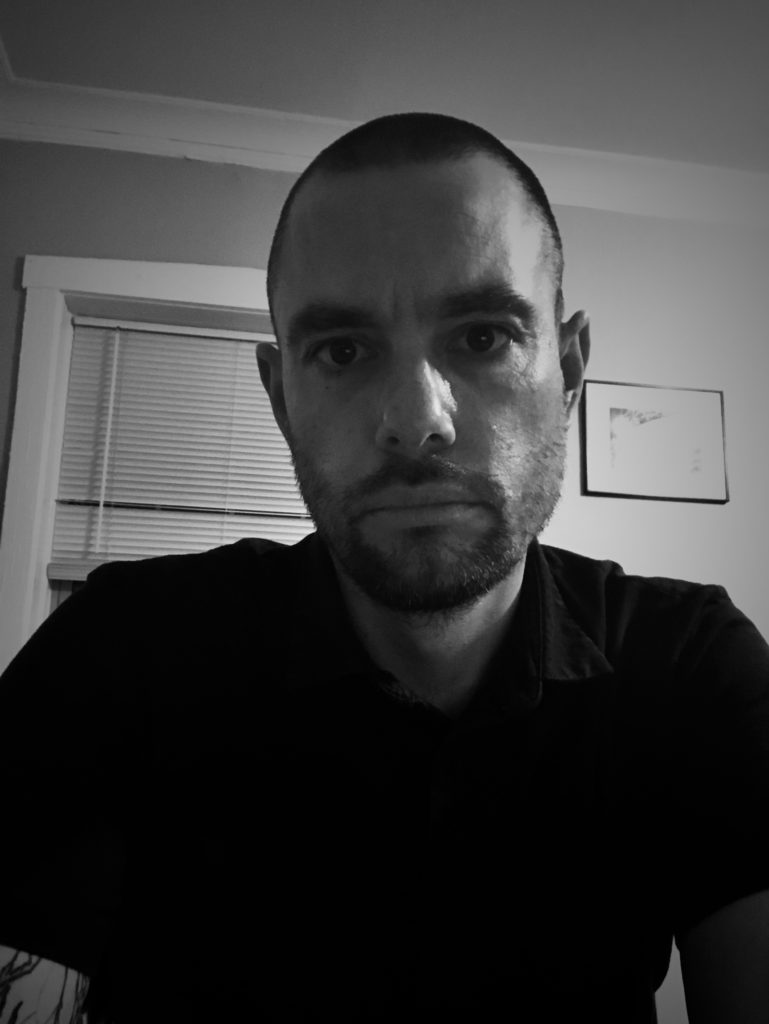
Late last year, Inside the Castle published new editions of two novels by Robert Kloss: The Woman Who Lived Amongst the Cannibals and A Light No More. Describing either book isn’t easy — Kloss combines the hallucinatory history of acid Westerns with the linguistic experimentation of Caroline Bergvall’s Drift. The overall sensibility is both fragmentary and all-encompassing, unlike anything else out there today. With these new editions made more widely available, I chatted with Kloss about the process of putting them together and exploring what might be next for him.
How did you come to work with Inside the Castle on these reissues?
I’ve been a fan of Inside the Castle since around the time I first published Cannibals. Everything about the press seemed really cool—the books, the ethos, even the name is fantastic. They were the only press I considered when I decided to get my books back in print. And thankfully John was into the idea. It means a lot to have my books in their catalog.
Did you end up altering the text or images at all for the new editions?
I didn’t. John wanted to keep them as close to the originals as possible anyway. But after a book is done—after I’ve submitted the final manuscript—I move onto the next thing.
The one change that we made was the addition of the author name. The self-published versions had no author name, but John felt that was necessary for these editions.
Aesthetically and stylistically, these two books seem the closest together of your bibliography. Have you continued writing in this style, or has it shifted in recent years?
Partly that closeness is because I revised and edited Cannibals for publication while I was deep into A Light No More. Cannibals was infected by the process of A Light No More.
I’ve continued in the same direction. I keep waiting for some kind of radical shift—I don’t impose style on a book, but I do try out different approaches. The book I wrote after Cannibals and A Light No More took as many different approaches as I could think of. I’m very restless when I work—I grow tired of an approach or a subject or a story and I move onto something new. My files are full of abandoned projects that I later go back to, cannibalize, reformat. The Genocide House is loaded with the corpses of other dead books.
Did revisiting these two books change your feelings on them at all?
When I work on a book—and I didn’t realize this until recently—I become a different person. My books are very personal to me—they’re almost sacred texts. And in order to write them I have to develop entirely new obsessions, philosophies, view points. I feel so connected with some aspects of the writing process that the text almost feels like a fabric of my being. So when I look at those books now I look at them in a totally different way—I look at them like books that were written by a different person. Maybe not entirely different—maybe not even recognizably different from the outside. But I know I couldn’t write those books again. The person that wrote them doesn’t exist anymore.
In an interview that you conducted around the time of the initial release of The Woman Who Lived Amongst the Cannibals, you mentioned you also had an epic-sized science fiction novel in the works. Any news on that?
I find it impossible to sustain any kind of project—projects bleed into new projects or are abandoned and restarted. Eventually a book is cobbled together from the various false starts. So I’m not sure anymore what I was working on at the time—I’m sure I was absolutely certain I was committed to a science fiction book when I mentioned that, but I probably moved on from it by the end of the week.
Much of your fiction deals with violence, fanaticism, and the bleaker elements of American history — all of which seem to have been magnified in recent years. Have you also found the world — for lack of a better term — more Kloss-esque as of late?
My goal was partly to use the past to create a grotesque reflection of the present. So, I’m not sure.
I don’t think there’s anything new in the world today. Not fundamentally. I will say that I think the bleaker elements of the present are like Netflix reboots of the past. Everything’s a little more obvious, a little slicker and dumber.
What’s next for you, in literary terms?
Good question! At the moment I’m looking for a home for The Genocide House. I don’t know what will happen there. I have very particular requirements for whoever ends up publishing it. If I can’t meet those requirements, I’m not sure what I’ll do.
I finished Genocide House 10 months ago or so. And since then I’ve tried getting into something new. I have a lot of false starts, a lot of different shifts, but nothing sustained. Every couple weeks I feel like I’ve finally figured it out, and a week or two or three later I realize it wasn’t right.
Follow Vol. 1 Brooklyn on Twitter, Facebook, and sign up for our mailing list.
